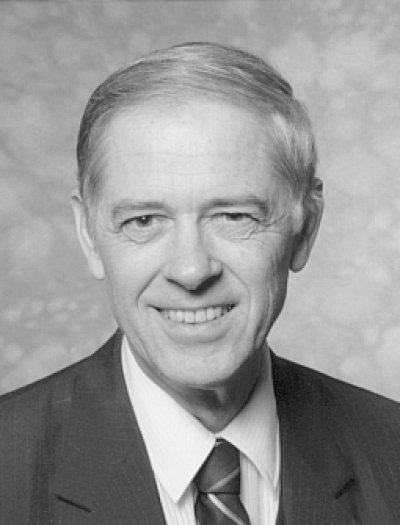Prominent Methodist Theologian Thomas Oden Dies at 85: 5 Things You Should Know

Thomas C. Oden, one of America's most prominent theologians, died at the age of 85 at his home in Oklahoma this week. Here are five things you should know about the prolific United Methodist author, who continued to write until his death.
An emeritus board member who chaired the board of the Institute on Religion & Democracy in Washington, D.C. for six years, Oden died Thursday. He was also professor emeritus at Drew University in Madison, New Jersey.
A scholar of the Early Church Fathers, Oden edited the Ancient Christian Commentary on Scripture, and recently wrote books on early African Christianity and the social ethics of John Wesley, including Systematic Theology. Most recently, he authored Turning Around the Mainline and How Africa Shaped the Christian Mind.
Here are five things you should know about Oden.
1. Oden had a dramatic change of heart. As IRD President Mark Tooley wrote after his death, "Tom Oden was esteemed as a theologian of Methodism, a Christian ecumenist and a scholar of the Early Church Fathers, who journeyed from mid-20th century liberal Protestantism to robust orthodoxy, for which he was an ardent champion."
The change in Oden began in 1970 when he started teaching at Drew, where his Jewish mentor Will Herberg told him that he must read patristic writers lest he wanted to remain "densely uneducated."
In his writings, Oden has described the shift in his thought as his return from being "a political penitent" to the "vitalities of the classic religious tradition." It was like a "waking up" from his "enthrallment" with modernity to meet "a two thousand year stable memory." He denied that he was "disavowing my former social idealism." Rather, it had been incorporated into "a more inclusive understanding of history and humanity."
"IRD was honored by his service on our board for eight years. He was a dear friend and counselor, a brilliant and cheerful warrior for good causes, irreplaceable," Tooley said. "Tom is now with the early saints whose lives and teachings he studied so closely. May God bless his memory and perpetuate the fruit of his labors."
2. Oden was a proponent of "paleo-orthodoxy," which sees the essentials of Christian theology in the consensus of the old church before the schism between the Orthodox Church and the Catholic Church and before the separation of Protestantism from the Catholic Church.
Oden published a series of books calling for a return to "classical Christianity."
"The term paleo-orthodoxy is employed to make clear that we are not talking about neo-orthodoxy. Paleo- becomes a necessary prefix only because the term orthodoxy has been preempted and to some degree tarnished by the modern tradition of neo-orthodoxy," which emphasises the revelation of God by God as the source of Christian doctrine, and not by observance of nature and human reason.
3. Oden drew attention to the African understanding of Christianity.
"Africa has played a decisive role in the formation of Christian culture from its infancy," says the introduction to Oden's book, How Africa Shaped The Christian Mind. "Some of the most decisive intellectual achievements of Christianity were explored and understood in Africa before they were in Europe. If this is so, why is Christianity so often perceived in Africa as a Western colonial import? How can Christians in Northern and sub-Saharan Africa, indeed how can Christians throughout the world, rediscover and learn from this ancient heritage?"
4. Oden continued to care for poverty.
"There is a great deal of material about poverty in patristic exegesis, particularly in commenting on those scriptural texts on stewardship, money, generosity, and hunger," Oden said in a 2011 interview. "In every Christian community in the ancient world, there were forms of active engagement with the poor. When you went to church, from earliest times you would have an opportunity to give to the poor."
However, he added that giving should not produce dependency. "To some these gifts elicited an entitlement mentality, even in the early Church. That required leadership by the church, to make reasonable rules about how to give aid without increasing the temptation to dependency, which is demoralizing to initiative. That remains a huge problem today. The patristic writers were commenting on Scripture texts in a way that remains important for us today in our understanding of abuses and temptations that may arise out of good motives."
5. Oden called for "new ecumenism" with no central bureaucracy.
"It is time to call the mainline denominations that are subsidizing the prolonged malingering of the National Council of Churches and World Council of Churches to withdraw their financial support altogether, and seek a new ecumenism grounded in classical ecumenical teaching," Oden said.
Oden pointed out that the old ecumenism sought unity in shifting political alliances, while the new seeks unity in Christ.



























